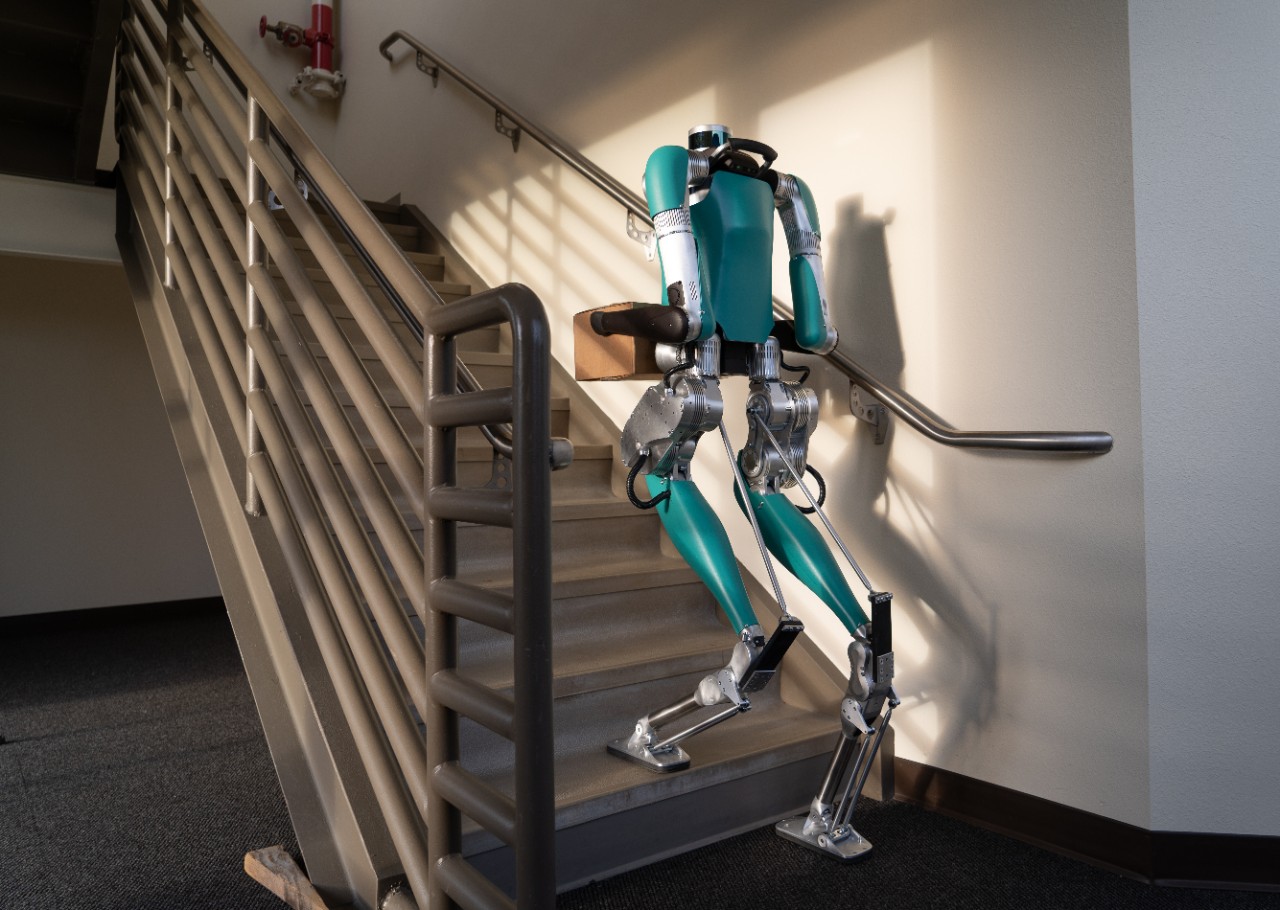Amazon launched Thursday a $1 billion fund focused on logistics, the supply chain and customer fulfillment with focus — at least in this first batch of investments — on wearable technology that improves safety in its fulfillment centers and robotics.
The Amazon Industrial Innovation Fund follows other investment activities by the company aimed at finding, backing and sometimes acquiring companies working on technology critical to its own mission. Amazon launched a $2 billion Climate Pledge Fund in 2020 to invest in sustainable technologies and services that will help the company reach its commitment to be net-zero carbon in its operations by 2040. Amazon’s climate fund has invested in 11 companies to date, including CarbonCure, CMC Machinery, Pachama, Redwood Materials, Resilient Power, Rivian, TurnTide Technologies, BETA Technologies, Ion Energy, ZeroAvia and Infinium.
The new industrial innovation fund taps into Amazon’s need to find faster ways to deliver goods, while improving the experience of customers and employees working in warehouses and logistics, according to the company. It also aims to build off of Amazon’s previous investments in AI and robotics that have led to adding improvements into its operations, including robotic arms that perform repetitive tasks and automation vehicles that can help transport larger items.
Amazon announced five initial investments into startups developing wearable technology and robotics. Amazon did not disclose the investment amounts. Here’s a breakdown of what each company is working on.
Agility Robotics
The Corvallis, Oregon startup founded by Jonathan Hurst and Damion Shelton, is best known for its bipedal walking robot named Digit. The robot is meant to address the “mobility limitations of traditional robots,” according to Amazon. That’s another way of saying Digit can get to places — namely stairs — where wheeled bots cannot.
Agility spun out of Oregon State University in late 2015 with an aim to commercialize research on bipedal locomotion from the Dynamic Robotics Laboratory. The company introduced its ostrich-inspired Cassie robot in 2017 as a bipedal research platform. Digit, which added an upper torso, arms, sensors and additional computing power to the Cassie design, was introduced in February 2019.
Not long after, Agility struck a partnership with Ford to test how two-legged robots and self-driving cars might work together. More recently, Agility has shifted its attention to logistics.
BionicHIVE
The Israeli company founded in 2014, is developing an autonomous robotic product branded SqUID that can adapt to existing shelving racks and boxes in warehouses and is capable of floor to ceiling functionality, according to Amazon. The product works as a robotic fleet. Each robot can roll along the ground of a warehouse floor, then attach itself to those gigantic floor-to-ceiling shelves in warehouses, slide up the racks, select a box and then descend.
Mantis Robotics
The San Francisco startup is the youngest in the investment block. Mantis Robotics, which is developing a tactile robotic arm that uses sensor technology to cohesively work alongside people, was founded in 2020. The technology allows for these robotic arms to be “fenceless,” allowing them to interact more freely with people without risk of injury.
Mantis Robotics was one of 15 early-stage startups that participated in Batchery’s 2021 fall program for entrepreneurs.
Modjoul
The Greenville, South Carolina data analytics startup founded in 2016 is working on wearable safety technology that provides real-time, personalized alerts and recommendations aimed at reducing injuries, most notably musculoskeletal issues.
The wearable tech is a belt with six sensors to provide motion, location and environmental data. Haptic feedback reminds employees of correct body mechanics while performing tasks like lifting boxes. Collected data is shared with the employee and supervisors and training can be developed to help reduce or eliminate workplace injuries.
Vimaan
The Santa Clara, California startup founded in 2016 is developing computer vision and artificial intelligence product to improve inventory management. The automated product essentially creates a digital warehouse that can capture, track and manage inventory across a warehouse, including receiving, put-away and picking, storage and pack and ship.
The company emerged from stealth earlier this year with $25 million in a seed and Series A round that included New Enterprise Associates (NEA), Wing VC and Neotribe Ventures.
















 English (US) ·
English (US) ·